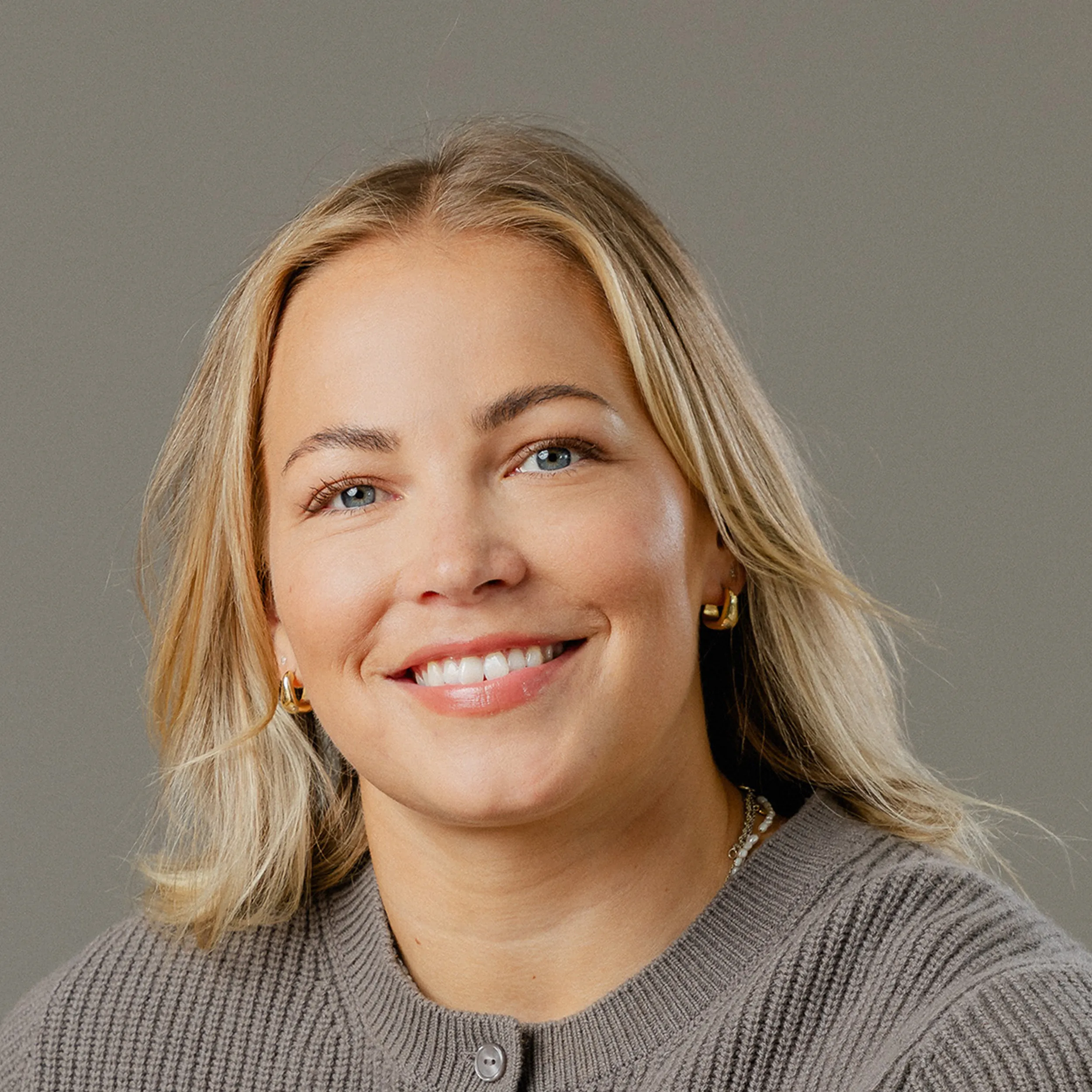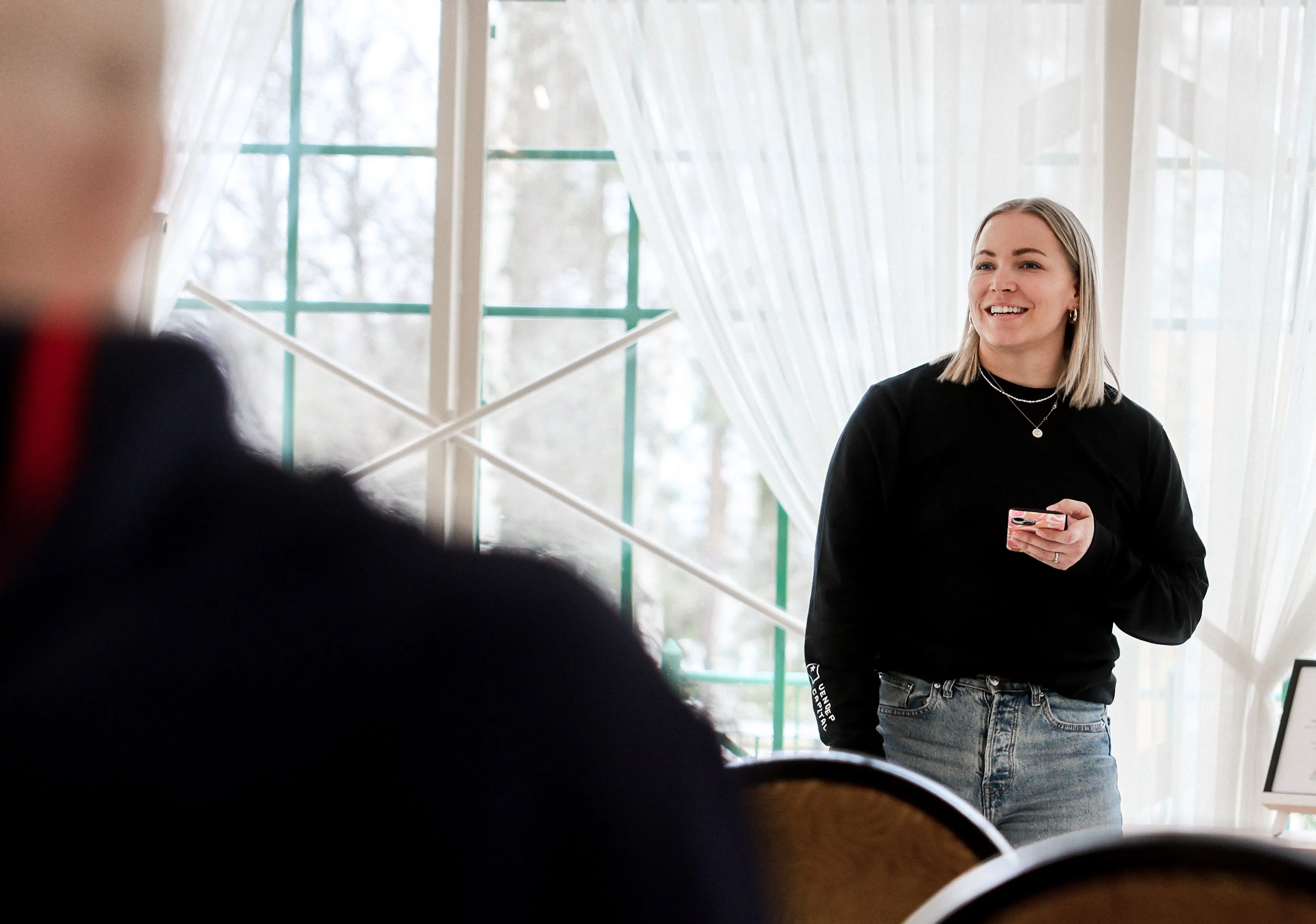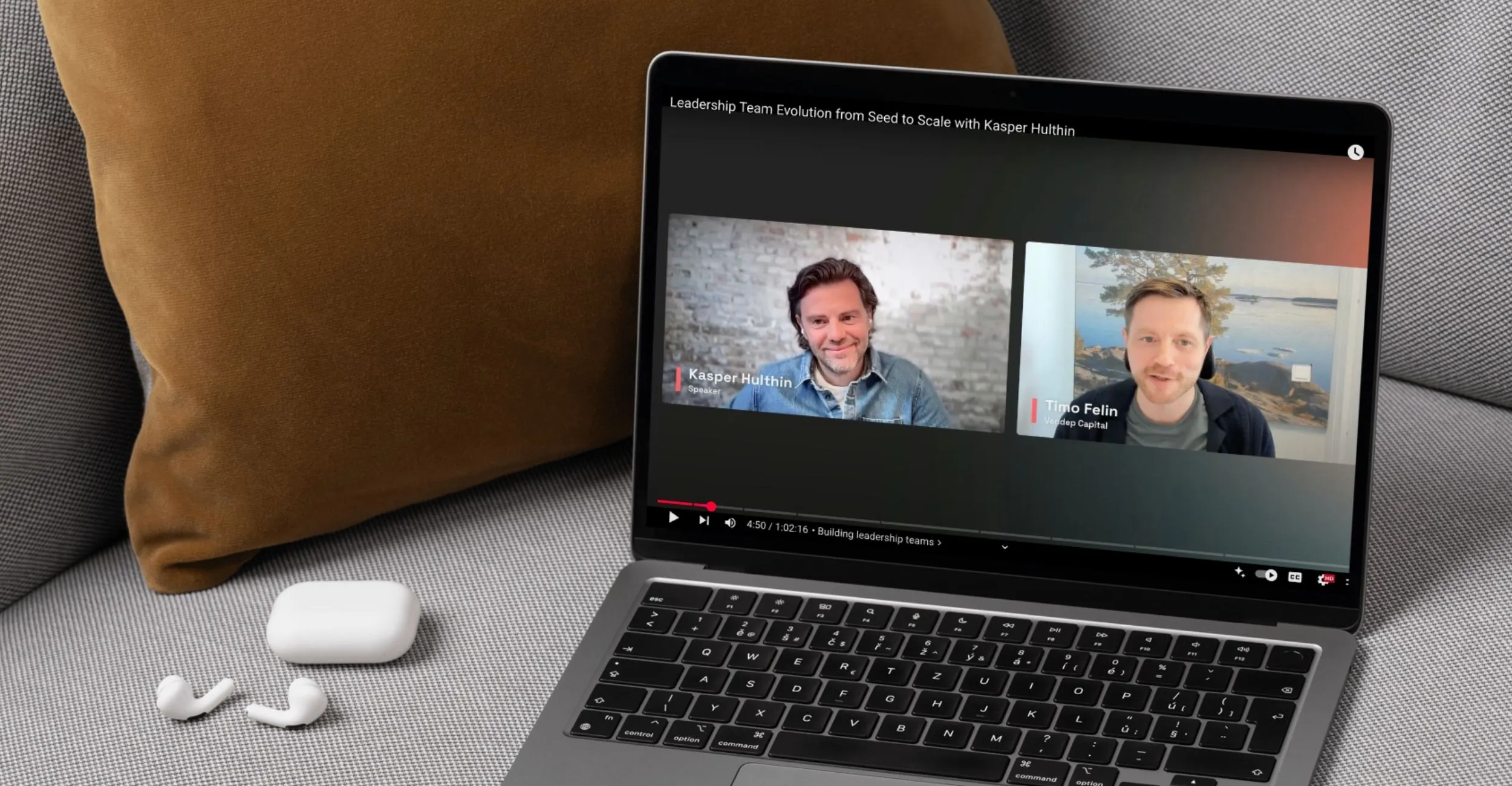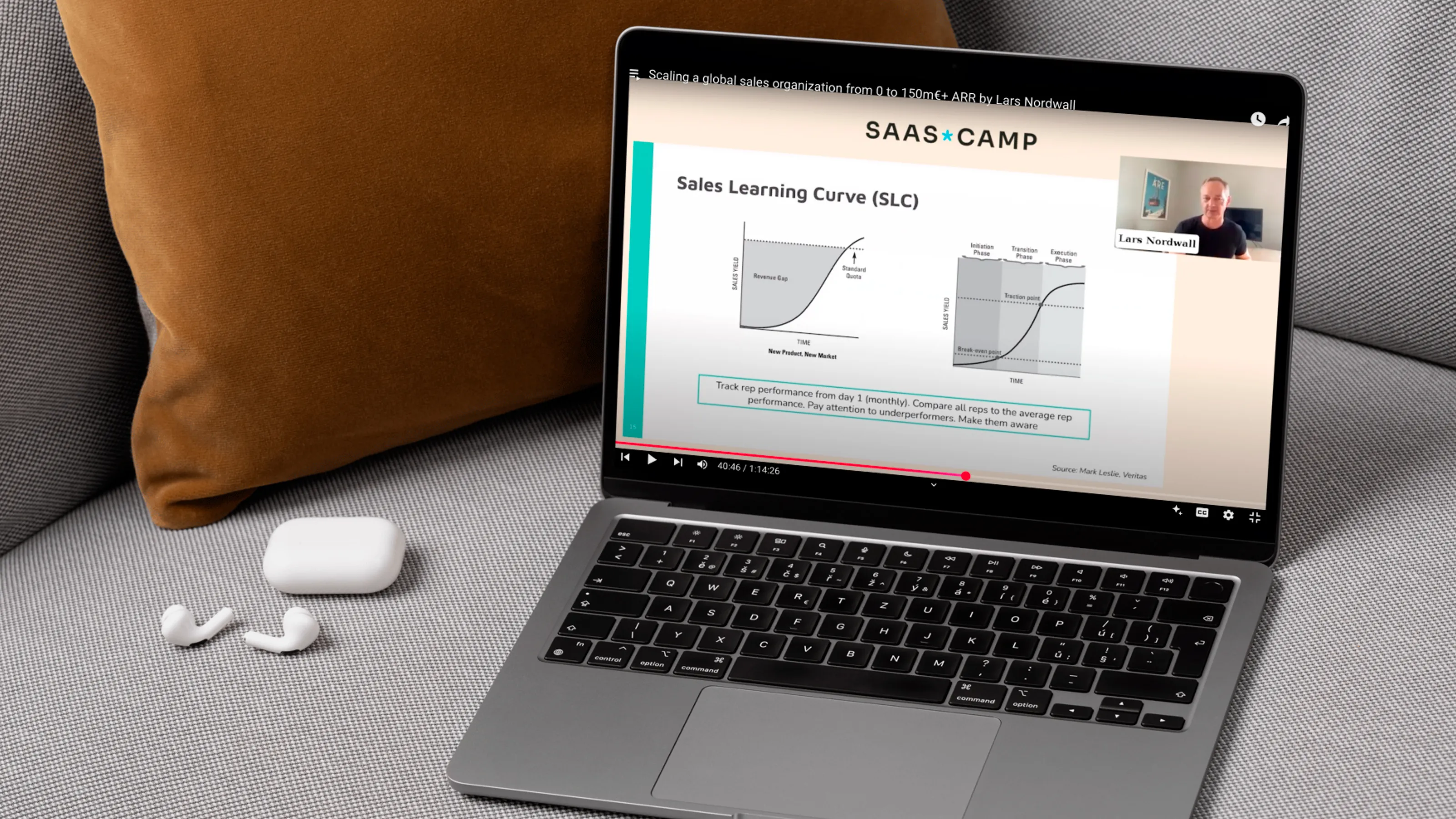I’ve been in the shoes of a first marketing hire at a seed-stage B2B SaaS startup, and now, working with founders across our portfolio of B2B SaaS companies, I’ve seen just how pivotal this decision can be.
Most startups hire their first dedicated marketer after achieving some initial product-market fit and securing seed funding, or generating early revenue. This typically falls within the post-Seed or early Series A funding stages.
At that stage, marketing isn’t really about fast scaling or chasing every channel out there. It’s about focus, learning, and speed. The right person will help you sharpen your positioning, validate your messaging, run scrappy experiments, and support founder-led sales with content and tools that actually move deals forward.
"Very rarely it's the time for a VP of Marketing used to managing big teams and polished brand campaigns."
In my eyes the biggest risk is hiring someone too senior, too specialized, or too far removed from the customer reality. Very rarely it's the time for a VP of Marketing used to managing big teams and polished brand campaigns. It’s time for someone who’s curious, hands-on, and excited to figure out together with you what resonates, what converts, and what’s worth doubling down on.
Besides bringing growth, your first marketing hire will shape how your company is perceived by customers, investors, future talent, and the broader market. Get it right, and it’s a multiplier. Get it wrong, and you may spend months undoing missteps.
When is the right time to hire your first marketer?
As I mentioned, B2B SaaS companies typically make their first marketing hire somewhere between late seed and early Series A. But in reality, the right timing has less to do with your funding round and more to do with your company’s stage of maturity and readiness.
A few clear signals usually indicate that it’s time to bring someone on board:
- You’ve landed your first paying customers, ideally outside your personal network. You’ve got some early product–market fit, and now it’s time to start building repeatable demand and learning what resonates in your messaging.
- You’re gearing up to scale sales. Maybe you’re hiring your first AE or prepping for a bigger funding round. Either way, you’ll need tighter positioning, stronger sales collateral, and early experiments to validate channels.
- The founder’s bandwidth is maxed out. If the founder is still writing all the copy, managing the website, handling outreach, and trying to track funnel metrics in between product meetings, it’s time for help.
But just as important as knowing when to hire is knowing when not to. If you’re still pre-revenue, pivoting frequently, or unclear on your ICP, a marketing hire may end up doing a lot of stuff with little impact. The foundation simply isn’t there yet.
If you’re thinking of hiring someone only “to run ads” or “make the brand look nicer”, pause for a sec. At this point in your company’s journey, marketing should be deeply embedded in the process of discovery – digging into customer conversations, testing messages, and helping translate the value of your product in ways that actually drive conversations and close deals.
Who should you hire as your first marketer?
Hiring your first marketer can be surprisingly difficult, especially if you don’t come from a marketing background yourself. Marketing is full of nuance and variety from strategy to execution, brand to analytics, long-term content to short-term campaigns. Without hands-on experience, it can be hard to know what to look for.
B2B SaaS background is a must
Not all marketing experience is equal. B2B SaaS marketing is a different game entirely compared to D2C, ecommerce, or even B2C SaaS. It requires a deep understanding of customer pain points, longer buying cycles, and a close partnership with sales. That’s why hiring “someone from your network who knows marketing” or a generalist from a different vertical often leads to misalignment.
"Someone with experience selling to SMBs in a product-led motion will know a very different playbook compared to someone coming from an enterprise SaaS company with multi-month sales cycles and heavy ABM focus."
Even within B2B SaaS, context matters. Someone with experience selling to SMBs in a product-led motion will know a very different playbook compared to someone coming from an enterprise SaaS company with multi-month sales cycles and heavy ABM focus. Neither is better or worse – but one will be more suited to your current stage and customer base.
I learned this firsthand when I moved from a successful enterprise software scale-up with a 20+ person marketing team to a startup selling to SME and mid-market customers. Many of the tactics I’d seen executed with big budgets and mature tooling didn’t translate. But the experience of seeing a wide range of marketing activities, from launches to lifecycle to field marketing, gave me a huge advantage in understanding how to prioritize and adapt.
Generalist or T-shaped?
In most seed-stage startups, especially when budgets and headcount are tight, your first hire should be a generalist or a T-shaped marketer.
A marketing generalist can roll up their sleeves and cover a lot: write a blog post, edit a case study, manage the website, launch an email campaign, and create social content. They’re scrappy, fast learners, and provide leverage across many areas.
A T-shaped marketer is similar – but with one or two deeper areas of expertise. For example, they might be broadly capable across content, email, and events, but go deep in growth marketing or product positioning. This hybrid can be extremely valuable, especially if their specialty aligns with your immediate priorities.
Not all T-shaped marketers are built the same – and the specialty they bring to the table will have a big impact on what gets done in the first 6–12 months. Here’s a quick overview of the most common T-shaped profiles and when they typically shine.
Content marketing focus
Pros: A strong storyteller who builds trust, scales the founder’s voice and narrative, supports sales with reusable content, and lays the groundwork for inbound.
Cons: Tends to have a longer-term impact with a slower feedback loop, may lack distribution skills, and runs the risk of producing content without a clear goal.
→ Best for: Founders who already sell well and need help scaling credibility and educational content.
Product marketing focus
Pros: Sharp on messaging and positioning, bridges product, sales, and marketing, and excels at launches and creating enablement content.
Cons: Not focused on lead generation, requires some existing traction to be effective, and may be too internally focused in the early stages.
→ Best for: Startups with early traction who need to sharpen their story and enable sales.
Demand gen focus
Pros: Fast-moving and experiment-driven, with strong channel testing and lead generation expertise, as well as proficiency with data and tools.
Cons: May overlook messaging and brand, depends on sufficient infrastructure and budget, and carries the risk of optimizing too early.
→ Best for: Startups aiming to quickly validate acquisition channels and show traction.
What works for most
There’s no universal best fit for a B2B SaaS startup – it depends on your product, GTM motion, and target audience. That said, for most early-stage B2B SaaS companies, I would say you get the most impact out of either choosing:
Content focused T-shaped marketer
→ When education and trust-building are key, and your growth will rely on thought leadership, SEO, or founder storytelling.
or
Demand gen focused T-shaped marketer
→ When you need quick wins, data-backed experiments, and early traction to feed your sales pipeline.
Checklist on characteristics to look for
No matter if you choose a marketing generalist or a T-shaped marketer, these are characteristics you really need from your first marketing hire:
✓ Versatile “growth hacker”: comfortable across content, email, SEO, social, and experiments
✓ Strategic + hands-on: they can both create plans and make them into reality
✓ Data-literate: they know how to track metrics, test hypotheses, and optimize
✓ Strong communicator: they work well with sales and founders
✓ Adaptable & scrappy: they’re OK with ambiguity, they’re budget-conscious and a good culture-fit to your company
In-house or outsource? Finding the right marketing setup
When you’re building your first marketing function, one of the big questions is how to resource it. Should you hire someone full-time? Rely on freelancers or agencies? Or try to blend the two?
The good news is: you have options. There are plenty of excellent marketing agencies and freelancers who can support early-stage growth. But not all models work equally well in every situation – especially when your product, message, and motion are still evolving.
Let’s break it down.
Hiring in-house: building core capability
Bringing marketing in-house means hiring someone who becomes part of your core team – someone who’s invested in the long-term journey and deeply embedded in your company’s culture, product, and mission.
Pros:
- Deeper product understanding: They live and breathe your product and know how to translate its value
- Better cross-functional alignment: They collaborate closely with sales, product, and leadership
- Consistency and ownership: They can drive long-term strategy, not just deliverables
- Cultural fit: They’re part of the team, not just a vendor on a call
Cons:
- Higher fixed costs: Salaries, benefits, and overhead add up
- Harder to hire specialists: One person won’t be an expert in everything
- Talent competition: Great early-stage marketers are in high demand and often expensive
Outsourcing: tapping into specialized expertise
Agencies and freelancers can be incredibly valuable — especially when you need executional support in areas like SEO, performance marketing, design, or content creation.
Pros:
- Access to expertise: Specialists bring skills you likely can’t afford full-time
- Flexibility: Scale efforts up or down based on need or budget
- Speed: Experienced pros can implement faster than someone learning on the job
Cons:
- Less control: It’s harder to manage priorities and timelines
- Limited context: They won’t fully “get” your product or customers
- Communication friction: Handoffs and feedback loops can slow things down
Hybrid approach often works best
In most early-stage B2B SaaS startups, the most effective model is a hybrid setup: one in-house marketer who owns the strategy and coordination, supported by external experts for specific tasks or campaigns.
This way, you get the best of both worlds:
- Strategic alignment and deep product understanding from your in-house marketer
- Flexibility, speed, and executional support from agencies or freelancers
- Cost-efficiency and focus – you’re not overhiring or under-resourcing
In my experience, the most successful setups start with a generalist or T-shaped marketer in-house. This person becomes the connective tissue across product, sales, and leadership. They should be empowered to test early channels (with freelance help where needed), learn what works, and eventually help scale the team intentionally based on those insights.
Rather than trying to hire a full in-house marketing team too early (or relying entirely on external partners) the hybrid model allows you to stay nimble, while building long-term capability inside your company.
Conclusion
Hiring your first marketer is one of the key early decisions you’ll make as a B2B SaaS founder. This person won’t just “do marketing”. They’ll help shape how your company is perceived, how your message lands, and how you generate your first real momentum.
But just like in every other area of building a startup, don’t expect a silver bullet.
"Early-stage marketing is messy, iterative, and full of unknowns."
There’s no one-size-fits-all playbook. Early-stage marketing is messy, iterative, and full of unknowns. You’ll test things that don’t work. You’ll sharpen your messaging five times before it clicks. That’s why it’s so important to bring in someone who’s not just smart and skilled, but also curious, adaptable, and willing to figure it out alongside you.
Whether you choose a scrappy generalist, a T-shaped marketer with a specific strength, or build a hybrid setup with freelance support, the goal is the same: build a marketing foundation that helps you learn faster, communicate better, and grow more deliberately.
Get this right, and it won’t just accelerate your growth – it’ll make the next hires, next campaigns, and next phase of your business much easier to navigate.




.jpg)



